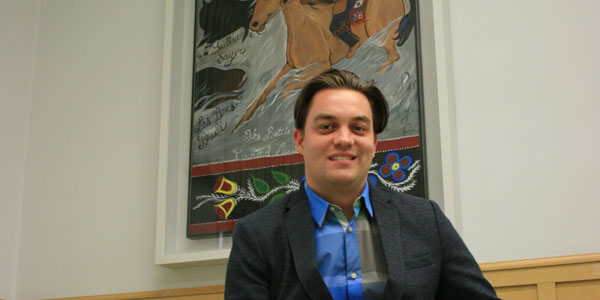Native studies assistant professor focused on governance
Adam Gaudry is right where he wants to be, having joined the U of S in September 2013 as an assistant professor in the Department of Native Studies specializing in Métis history and governance.
By University Communications "I always knew I wanted to end up in a Prairie province," he said. "They're in the Métis homeland. Métis issues are important issues that are part of the public consciousness the way they're not in Ontario or B.C."
"I always knew I wanted to end up in a Prairie province," he said. "They're in the Métis homeland. Métis issues are important issues that are part of the public consciousness the way they're not in Ontario or B.C."Gaudry grew up in Ancaster, Ontario, part of a Métis family with roots in Sioux Narrows on Lake of the Woods. He completed his undergrad and graduate degrees in political studies and sociology at Queen's University before pursuing a PhD in Indigenous governance at the University of Victoria. He received a fellowship from Yale University in Connecticut where he spent a year completing his dissertation just before coming to the U of S.
His current research focuses on Métis governance in 19th-century Manitoba, arguing for recognition of a treaty relationship between the Métis of Red River and the Canadian government in 1870. Had promises been kept, he said, Manitoba would be a Métis-majority province with protections for Métis people's a central position in its government.
This knowledge of unfinished business is what Gaudry hopes to impart to his students.
"I encourage students to think more broadly about native governance and how the Canadian government – by constitutional necessity, because of the treaties – how they need to respect indigenous decision making. If I can encourage people to see that and point that out to others, I know I've done my job."

